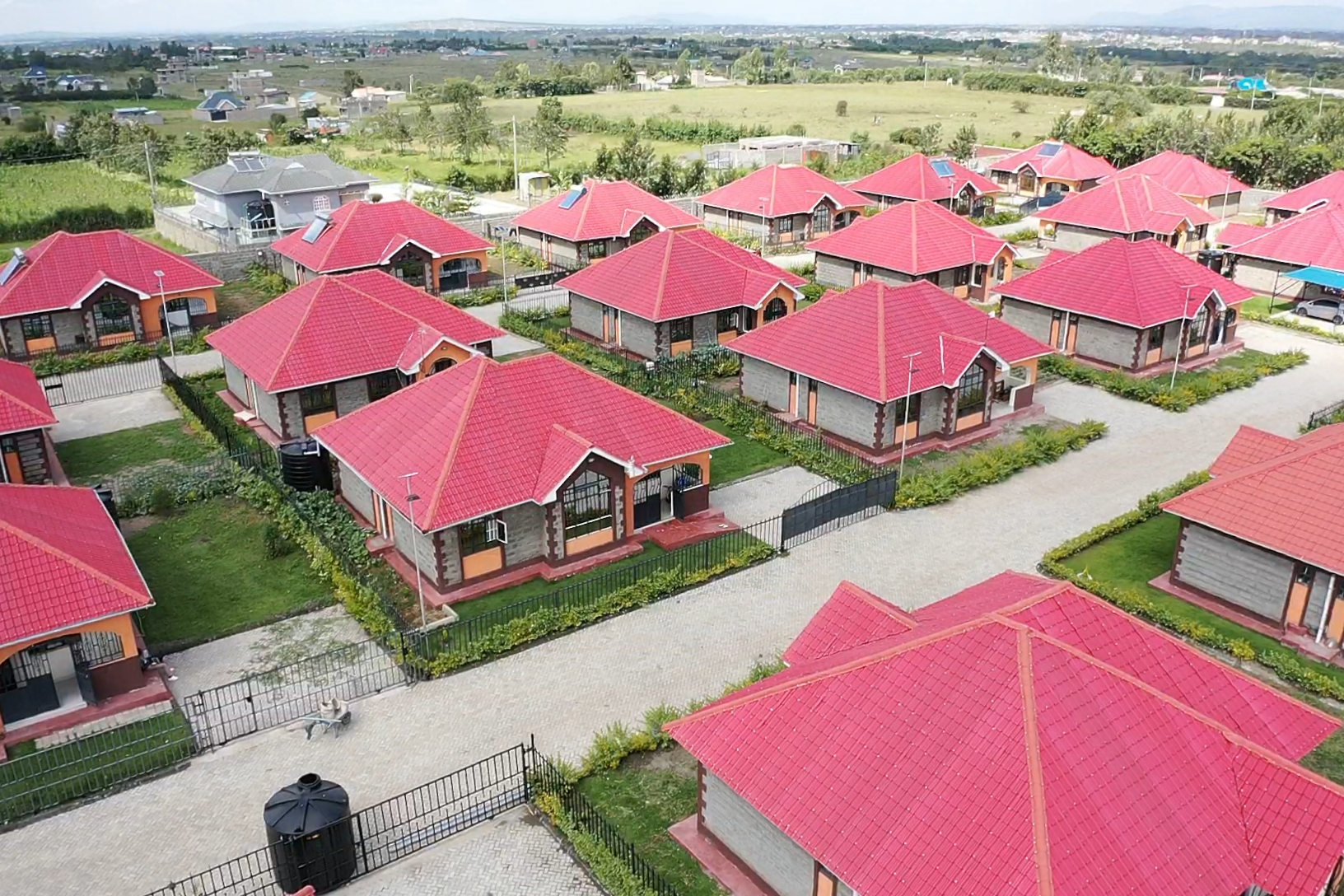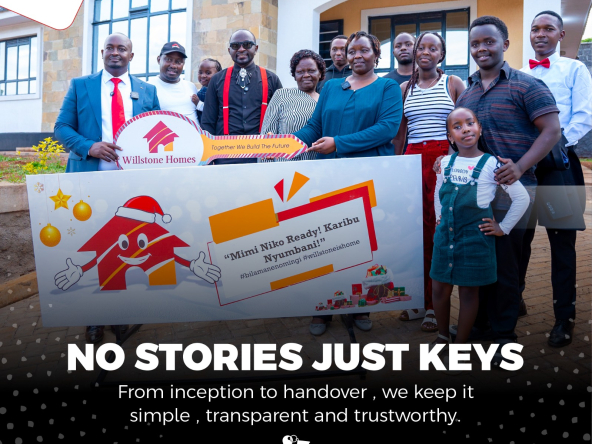For many Kenyans living abroad, investing back home is not just a financial decision—it’s an emotional one. Whether driven by dreams of retirement, family responsibility, or wealth creation, the question arises: should you buy undeveloped land and wait (land banking), or invest in a finished unit in a secure estate (estate living)?
This article unpacks the key differences, risks, and rewards of both options and offers insight into the smarter move for the modern diaspora investor.
What is Land Banking?
The Basics of Speculative Land Buying
Land banking involves purchasing a parcel of undeveloped land and holding it, often for several years, hoping its value appreciates over time. Many diaspora buyers opt for this route, particularly in satellite towns like Kamulu, Joska, Juja, and Kangundo Road, with the dream of building later or selling at a profit.
What is Estate Living?
Finished Units in Gated Communities
Estate living refers to buying a ready or off-plan house in a gated community—a private, secure, and professionally managed residential development. This model is gaining traction among both local and diaspora clients due to its convenience, predictability, and built-in security.
Comparing the Two Models
1. Investment Risk and Return
Land Banking:
- High-risk, high-reward: If the area is later serviced with infrastructure (roads, water, electricity), the value can multiply.
- But: The land may remain dormant for years or become caught in legal disputes, zoning issues, or land fraud.
Estate Living:
- Lower risk, steady returns: Gated units often appreciate consistently due to demand, location, and quality assurance.
- Rental potential is immediate, offering passive income via local tenants or Airbnb for short-term rentals.
2. Cash Flow and Income
Land Banking:
- No immediate returns. The land doesn’t generate cash unless leased for agriculture or temporary use.
- Can sit idle for years with only taxes and maintenance costs to show for it.
Estate Living:
- Finished units in areas like Ruiru, Athi River, and Syokimau offer rental income from day one.
- Some buyers lease out while abroad and collect income in USD or KES, depending on agreements.
3. Development Costs and Hidden Expenses
Land Banking:
- Many underestimate the true cost of development.
- Beyond the land price, one must budget for architectural design, approvals, NEMA compliance, water/electricity installation, and contractors—often from afar.
Estate Living:
- What you see is what you get. Developers like Willstone Homes bundle everything: paved roads, perimeter walls, water, sewer, and security.
- Diaspora clients avoid project management headaches and enjoy a plug-and-play home.
4. Legal Security and Title Verification
Land Banking:
- Land fraud remains rampant in Kenya.
- Many diasporans have lost millions to double titling, forged documents, or family interference.
Estate Living:
- Most gated communities come with clean, registered titles or long-term leaseholds, often verified by lawyers.
- Developers also handle subdivision and transfer paperwork, making it easier for clients abroad.
5. Community, Infrastructure, and Amenities
Land Banking:
- Often in remote areas lacking water, roads, or sewer systems.
- You might be the only person who builds on your plot for years, leading to loneliness or insecurity.
Estate Living:
- Gated communities feature schools, playgrounds, clubhouses, and even small malls.
- This “community-first” approach builds instant neighborhood value and increases your resale/rental value.
6. Emotional and Lifestyle Value
Land Banking:
- Appeals to those who want to build their “dream home” from scratch, possibly on ancestral land.
- But it takes time, money, and often long-distance coordination.
Estate Living:
- Offers instant gratification—your family can move in right away.
- Many diasporans use these homes during short visits and rent them out the rest of the year.
Read Also: How Easy Loans in Real Estate Are Fueling a Property Boom in Nairobi’s Satellite Towns
Real-Life Example: Kamau in Canada
Kamau, a Kenyan based in Toronto, bought two plots in 2017 along Kangundo Road, hoping to build a family home. As of 2025, the area remains underdeveloped, and he still pays for watchmen to guard the idle land.
In contrast, his friend Njoki invested in a 3-bedroom maisonette in a gated estate in Joska. She rents it out for KES 60,000 monthly and stays there during her annual visits. The estate has grown in value and is now a prime listing.
So, Where Should Diasporans Put Their Dollars?
While both models can work, gated estate living offers more immediate returns, greater security, and fewer management challenges—especially for clients living abroad.
Land banking is best left to seasoned investors with teams on the ground and long time horizons. For most diaspora families seeking stability, peace of mind, and income, buying a finished home in a controlled, appreciating estate is the better option.
Estate Living is the Modern Diaspora Standard
In today’s real estate market, time, trust, and security are everything. Gated communities offer a tested formula that aligns with diaspora needs: a ready home, a growing asset, and a place to truly belong.
At Willstone Homes, we’ve designed our gated estates to meet the aspirations of Kenyans abroad—secure, serene, and investment-smart. Whether you’re planning your return or building a legacy for your family, estate living offers the foundation you need.
Read Also: Mortgages and Home Loans in Nairobi: Unlocking Access to Gated Community Living in Satellite Towns





